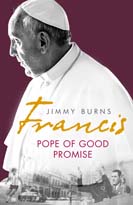Serrat, thanks for the reunion
It was around 1984 that I went to my first a concert by Joan Manuel Serrat. Amid tears and songs, I hugged my wife and those around us. At that time we were experiencing the terminal decline of the military regime in Argentina, the junta that had disappeared after about 9,000 people before provoking a grotesque war with Britain in the Falklands – Two bald men fighting over a comb, said the old Borges.
The singer-songer writer Serrat wanted to see the democracy in Latin American countries that he and others had won in Spain-a transition from dictatorship to parliament- which could express aloud the most profound and universal culture of the Hispanic people. The poems in words and music of Hernández and Machado filled the Buenos Aires theatre with a tremendous force of both resistance and hope, and we knew that the barracks were trembling as was the presidential Casa Rosada.
Later when I began to write books about the politics of football in the history of Spain, I mentioned Serrat, born in the Poble Sec of Barcelona to a woman from Aragon, in Barca, a book about FC Barcelona, recalling his emblemic song about the victory of the Five Cups and the legendary quintet formed by Kubala, Basora, Cesar Moreno, and Manchon.
Last Friday, nearly a a week after Barca won the treble in Berlin, I caught up again with Serrat in a concert he gave at the Barbican in London. This London cultural center outwardly is built like a bunker which makes the inner experience that much sweeter. The concert hall was intimate enough to a gig that was part farewell, part celebration. Serrat long ago ditched in his live performances the large orchestra and overproduction that characterized his recordings in the 1970’s. On Friday only five musicians were with him on stage, all veterans, except for a younger guitarist.
The small set allowed the public to focus more on the personality of Serrat, a great actor as well as singer who moves well around the stage and engages with his audience. But the set also exposed his fragility for at the age of 72 his voice is not what it was. On the night he was only just getting over a threat infection. Not that Serrat shows weakness or coldness. On the contrary, he maintains a great sense of humor and a great resistance to give up.
A few weeks ago, under orders of his doctor, he had to cancel a concert in Catalunya for the problems suffered in his throat but in London he was seen constantly drinking water with honey. He evidently wanted to keep going and give us everything that he had to give , and more . He showed, as always, a Quixotic nobility, this great fighter, dreamer, and humanist.
As it should be, since it was announced as a Disordered Anthology of work spanning half a century, the concert did not lack the most beloved songs , some of them, like Por Que Te Quiero , in a more rhythmic updated version, to give them new life, others like Los Enanos Locos, as always, a necessary memory. Other songs, including poems by Machado and Hernandez filled the room with a sense of human solidarity. Nor did he forget our Latin American brothers and sisters, in a lesser known song about the exploitation of marginalized children. Again we were there, as the poet would say, ‘blow by blow’ , ‘paving the way with our walk’ , crying out for Liberty, some of us with open arms and clenched fists.
When it seemed that Serrat, half exhausted, was about to leave us, the audience-mostly Spanish and Latin American and Hispanic-gave Serrat a standing ovation, amid tears and encores, and he sang Lucia- the song that taught many of us how to love. During more than two hours, this singer as much Catalan as Spanish, a universal man, filled the warm night of London with nostalgia and future, with more joy than sadness, proclaiming, towards the end, that even for those of us getting old, as he sang, ‘this will be a great day. ” And so it was.

